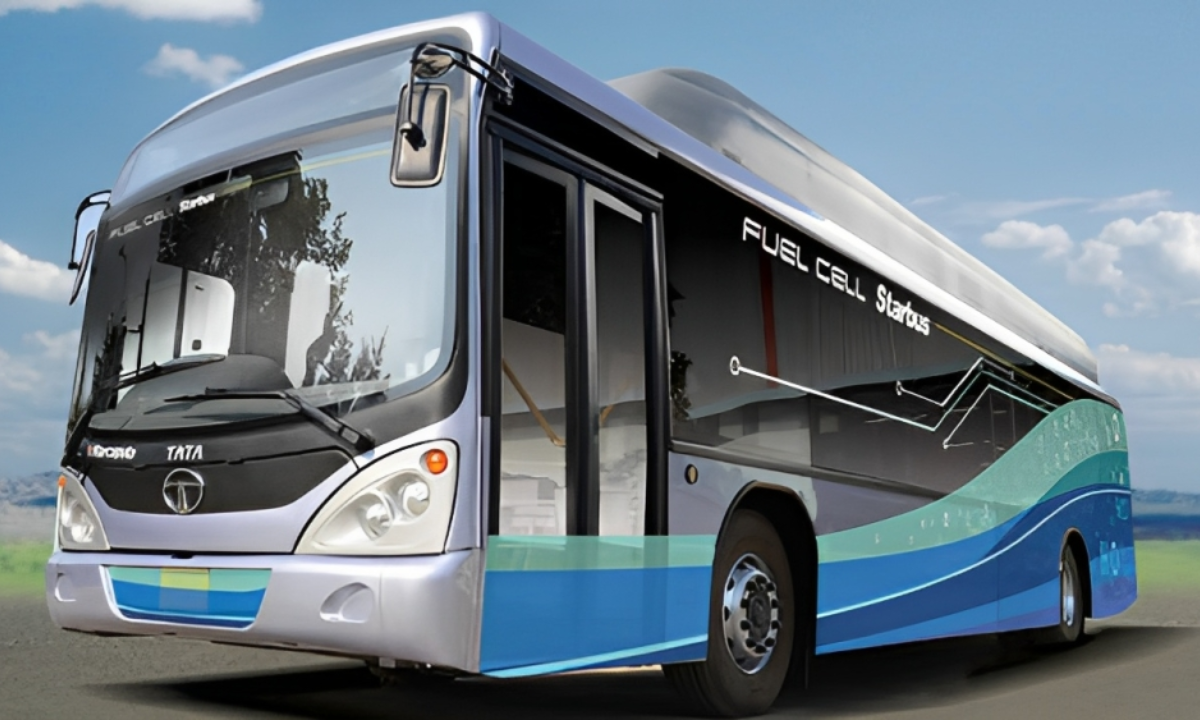India has made outstanding progress in recent years in its efforts to move towards a future that is cleaner and more sustainable. The introduction of hydrogen bus in India into the nation’s public transportation system has emerged as a ground-breaking initiative as part of these efforts. Buses powered by one of the universe’s most plentiful elements, hydrogen, have the potential to transform transportation, cutting carbon emissions and paving the path for a greener future.
The Story of Hydrogen Bus in India
On August 21, 2021, the first hydrogen bus in India was introduced in Pune, Maharashtra. The Council of Scientific and Industrial Research (CSIR) and the business KPIT developed the bus.
A hydrogen fuel cell, which turns hydrogen and oxygen into electricity, powers the bus. The electric motor of the bus is then driven by the electricity. The bus can be refueled in roughly 15 minutes and has a 250-kilometer range.
When compared to a conventional diesel bus, the vehicle is anticipated to reduce carbon emissions by up to 80%. In comparison to a conventional diesel bus, it is anticipated to be both more effective and quieter.
The bus is undergoing testing in Pune and will be utilized for citywide public transit. If the pilot is successful, the bus might be introduced in further Indian cities.
Read also: BYD Electric SUV
The first hydrogen fuel bus in India has some of the following major characteristics:
- Fuel cell powered by hydrogen
- 250-kilometer range
- Refueling takes around 15 minutes.
- Pp to 80% less carbon emissions
- More efficiency and reduced noise than a conventional diesel bus
A crucial step has been taken in India’s development of hydrogen fuel cell technology with the arrival of the nation’s first hydrogen bus in India. The goal of the bus is to promote the use of hydrogen fuel cells as a clean and long-lasting source of energy for transportation.
The Travel Charge is Low
In April 2020, Ashok Leyland began producing hydrogen-powered buses. providing buses for Rs. 2.5 crores. Buses powered by hydrogen fuel cells will also have lower passenger fares. The price will be comparable to what it is now for 9-meter diesel buses. The corporate CEO stated that NTPC will address any emerging technical issues with the buses.
For Environmental Protection
Ladakh, located in the Himalayan mountains, is rising to new heights. Ladakh has numerous unique offerings. Not only must we safeguard them, but we also must take care of them. Sikkim is well known for being an organic state. The prime minister asserted that Ladakh, Leh, and Kargil can carve out a special place for themselves in the Northeast as “carbon neutral” units. Despite being acknowledged as a crucial technology for the energy transition, hydrogen fuel cells are currently under development. At its facility, Reliance Industries Limited is also testing hydrogen-powered buses.
Read also: Citroen C3 Aircross
The Road Ahead
Although there are difficulties, India’s hydrogen bus effort has significant possibilities. The cost of manufacturing hydrogen buses is anticipated to reduce as technology develops and economies of scale take hold, making them a more attractive alternative for mass transit. Furthermore, cooperation with commercial companies and government backing can hasten the development of a strong hydrogen ecosystem.
Conclusion
A huge step toward a cleaner and greener transportation future has been made with the introduction of hydrogen bus in India. These buses provide a solution to the urgent problems of air pollution and climate change by harnessing the power of hydrogen. The hydrogen bus is a symbol of India’s dedication to an innovative and environmentally responsible future as the country continues to embrace both of these concepts.
